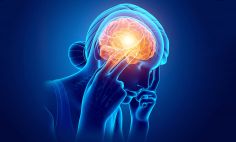Health Topics

Helping friends and family understand migraines
Teamwork, support play a role in relief
Many people with migraines experience stigma. For example, others may not believe their migraine pain is real or that bad, and may treat them negatively because of it.
"Stigma is very important in understanding how someone with migraines interacts with other people around them," said Michael Oshinsky, Ph.D., a program director at the National Institute of Neurological Disorders and Stroke (NINDS). "They've often experienced times in their life when other people do not take their neurological disorder seriously. For example, saying, 'You can just work through it, it's just a headache,' when that's not the case."
Stigma can make people hesitant to take time off during a bad migraine and sometimes hesitant to seek treatment. But getting care and consulting a health professional should be a priority for migraine sufferers. Here are three things Dr. Oshinsky recommends that can empower people with migraines:
-
Educate yourself. "The individual suffering from migraines will gain a lot from educating themselves about this disorder," Dr. Oshinsky says. He suggests seeking out NINDS resources online to learn about migraines. The more you know about them, the more likely you are to seek help when you need it.
-
Educate others. "Once the person feels educated and understands the complexity of the neurological disorder that migraine is, they can talk to other people when they're experiencing a migraine," Dr. Oshinsky says. "They can discuss the other associated symptoms and the intense pain of their experience. That will help other people to understand."
-
Be honest when you feel pain. It's important to be honest about what symptoms you feel when you have a migraine. When people realize you are experiencing pain so intense you get nauseous, or symptoms like confusion and sensitivity to light and sound, "the idea of 'It's just a headache' doesn't pan out," Dr. Oshinsky says.







